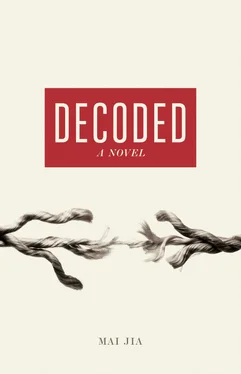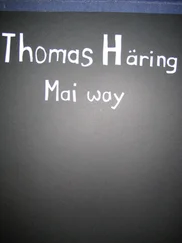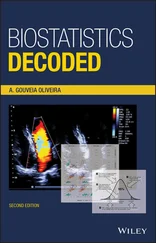Mai Jia - Decoded
Здесь есть возможность читать онлайн «Mai Jia - Decoded» весь текст электронной книги совершенно бесплатно (целиком полную версию без сокращений). В некоторых случаях можно слушать аудио, скачать через торрент в формате fb2 и присутствует краткое содержание. Год выпуска: 2014, Издательство: Allen Lane, Жанр: Современная проза, на английском языке. Описание произведения, (предисловие) а так же отзывы посетителей доступны на портале библиотеки ЛибКат.
- Название:Decoded
- Автор:
- Издательство:Allen Lane
- Жанр:
- Год:2014
- ISBN:нет данных
- Рейтинг книги:3 / 5. Голосов: 1
-
Избранное:Добавить в избранное
- Отзывы:
-
Ваша оценка:
- 60
- 1
- 2
- 3
- 4
- 5
Decoded: краткое содержание, описание и аннотация
Предлагаем к чтению аннотацию, описание, краткое содержание или предисловие (зависит от того, что написал сам автор книги «Decoded»). Если вы не нашли необходимую информацию о книге — напишите в комментариях, мы постараемся отыскать её.
Decoded — читать онлайн бесплатно полную книгу (весь текст) целиком
Ниже представлен текст книги, разбитый по страницам. Система сохранения места последней прочитанной страницы, позволяет с удобством читать онлайн бесплатно книгу «Decoded», без необходимости каждый раз заново искать на чём Вы остановились. Поставьте закладку, и сможете в любой момент перейти на страницу, на которой закончили чтение.
Интервал:
Закладка:
In the 1940s, after documents encrypted using EAGLE appeared on Hitler’s desk, Johannes chose to betray his homeland, to desert the German military and switch sides, joining up with the Allied forces. His betrayal had nothing to do with political beliefs, nor with money. His only reason for leaving was EAGLE, a cipher that caused every cryptographer to fall into despair.
It was said that EAGLE was developed by an Irish mathematical genius who had once been resident in Berlin. The story was that during a visit to a Jewish synagogue he had been helped by God to create it: a cipher so sophisticated that it was reckoned secure for thirty years. EAGLE outstripped other ciphers of the time ninefold — this was incredible, unheard of; indeed, it was downright unbelievable.
We could say that the fate that awaits all cryptographers everywhere is that whatever they strive after will always remain just out of reach, always on the other side of the glass. Like the chance of a particular grain of sand from the sea colliding with a particular grain on the shore, the odds are millions upon millions to one: completely impossible. Even so, cryptographers still chase after this gargantuan impossibility. In the process of writing ciphers, the cryptographers, or the ciphers themselves, will invariably encounter certain unavoidable mishaps — akin to people randomly and instinctively sneezing: it’s bound to happen but there is really no way to calculate the numerical probability of when it will actually take place. The problem is that when pinning one’s hopes on the possible mistakes of others, one cannot but help feel this is at once absurd and terribly sad. This layering of absurdity upon absurdity, sorrow upon sorrow, has become the fate of many cryptographers: so many — all of them the elite — have passed their lives in this fashion, obscure and unknown, living dark and tragic lives.
Whether it was thanks to his genius or his luck, Professor Klaus Johannes needed only seven months to crack EAGLE. In the history of cryptography it could be said that his accomplishment was unique and never to be repeated: an unbelievable occurrence, like the sun rising in the west, or a single raindrop deciding to fall upwards in a downpour. .
[To be continued]
Every time he thought about his fate, Rong Jinzhen had an inexplicable sensation of shame and uneasiness, a dreadful feeling of unreality. He would frequently gaze at Johannes’ photo and repeat to himself: ‘Everyone has a hero, and you’re mine: all my knowledge and power come from your example and your encouragement. You’re my sun: my brilliance can never be separated from yours, never outshine yours. . ’
This type of self-deprecation wasn’t due to Rong Jinzhen feeling dissatisfied within himself; no, it was due to the enormous respect he had for Professor Johannes.
In truth, besides Klaus Johannes, there was no one else that he admired other than himself; he didn’t believe that anyone else in Unit 701 could break BLACK if he couldn’t. He didn’t have confidence in his colleagues; or at least his reason for feeling this way was completely straightforward: no one else at Unit 701 showed any sincere admiration for Klaus Johannes. Amidst the clattering of the train across the tracks, he clearly heard himself speak to his hero. ‘They cannot see your intellectual magnificence, and if they did, they would only be afraid of it. But I cannot understand nor trust their reasoning. To appreciate something that is truly beautiful requires courage and talent; without this, beauty can only terrify.’
Rong Jinzhen believed that only in the eyes of other geniuses could one’s own genius be valued. In the eyes of the common man, geniuses were quite likely to be seen as freaks or fools. This was because those with superior intellect had left the common man behind, had marched far off into new frontiers, so far that even if the commoner raised his eyes to look, he could not see them, thus thinking erroneously that the genius had fallen behind. This was the plebeian way of thinking. All it took for them to exclude — to fear — a genius was for the latter to be uncommunicative; they would never realize that the genius’ silence issued from his fear and not from contempt.
It was here that Rong Jinzhen believed the reasons for his distance from his colleagues lay: he could appreciate and thus respect Johannes’ abilities. He could bask in this giant’s intellectual brilliance — it shone over him and through him as if he were glass — but no one else was able to see; they were like stone and Johannes’ brilliance could not shine through them.
Continuing this train of thought, Rong Jinzhen felt that comparing geniuses to glass and commoners to rock was particularly apposite. Geniuses after all had many of the qualities of glass: they were delicate, easily broken, very fragile; not at all like stone. Even if a stone were to be cracked, it wouldn’t shatter like glass; perhaps a corner or a face would be broken off, but it would still remain a stone, and could still be used as a stone. Glass, however, did not have this resilience: its innate quality was vulnerability; to be cracked meant to be shattered, each shard becoming useless. Geniuses were just like this: all it took was for you to snap off their outstretched head, like breaking a lever in two. The remaining bits would be worthless. He again thought of his hero: if there were no ciphers in need of decryption, what would be his worth? Nothing!Outside the window, night was slowly turning into day.
4
Everything that happened after this was totally unreal, because it was too real.
That’s how it goes: when things seem too real they become unreal; people have trouble believing them — just like most people can’t believe that in any mountainous area in Guangxi you can take a sewing needle and exchange it for a cow, or even for one pure silver broadsword. No one can deny, however, that it was ten years ago, whilst dreaming of Dmitri Ivanovich Mendeleev (1834–1907) — who had himself been given the idea of creating the periodic table in a dream — that the secret to cracking PURPLE had come to Rong Jinzhen. This was of course an extraordinary story, but what happened next far exceeded it.
In the middle of the night, Rong Jinzhen had been woken by the sound of the train pulling into a station. As was his habit, upon waking he immediately reached out his hand to touch the safety-deposit box that was under his bunk.
It was there! Still chained to the leg of the tea table. Feeling at ease, he lay back down, trying to differentiate between the scattered sound of footsteps and the blare of the train station’s public address system.
The public address system informed him that they had arrived in B City.
The next stop would be A City.
‘Still three hours to go. . And then home. . Home. . Only a hundred and eighty minutes left. . Sleep a little more, home. . ’ In a daze, he fell back to sleep.
Before a moment passed, however, the train whistle blew sharply, signalling its departure from the station, waking him up once more. The clacking upon the tracks grew ever more intense, and just as music gradually increases a person’s level of excitement, it prevented him from falling asleep. He never slept soundly in any case; how could he endure such auditory violence? The sounds of the train rolled over him, thoroughly waking him up. Light from the moon flitted into the cabin, shining directly upon his berth. The shadows tossed about, fluctuating sharply, tempting his drowsy eyes. Just then, he noticed something unusual out of the corner of his eye. What was it, what was wrong? Making a lazy attempt to ascertain what had happened, rolling it over in his mind, he finally realized that his leather attaché case which had been hanging on a hook on the wall — a bag very much like a teacher’s black briefcase — was gone. He got up abruptly, searching in his berth for it. It wasn’t there. Then he got down and looked round the floor, the tea table, under his pillow. It was nowhere to be found!
Читать дальшеИнтервал:
Закладка:
Похожие книги на «Decoded»
Представляем Вашему вниманию похожие книги на «Decoded» списком для выбора. Мы отобрали схожую по названию и смыслу литературу в надежде предоставить читателям больше вариантов отыскать новые, интересные, ещё непрочитанные произведения.
Обсуждение, отзывы о книге «Decoded» и просто собственные мнения читателей. Оставьте ваши комментарии, напишите, что Вы думаете о произведении, его смысле или главных героях. Укажите что конкретно понравилось, а что нет, и почему Вы так считаете.












